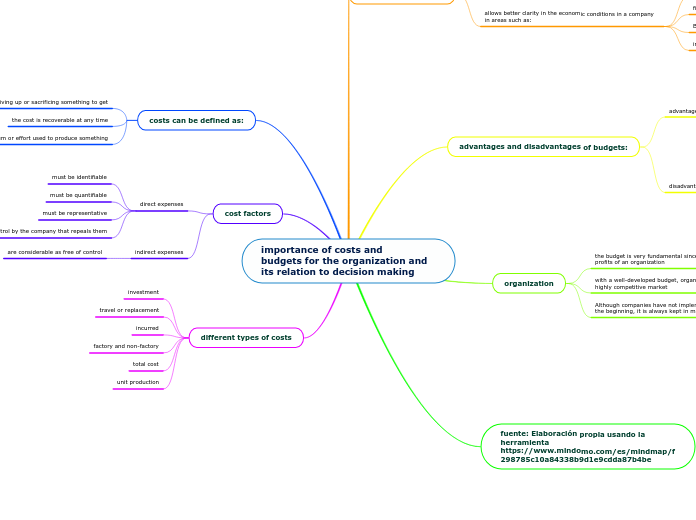importance of costs and
budgets for the organization and its relation to decision making
costs can be defined as:
the cost of giving up or sacrificing something to get
the cost is recoverable at any time
the sum or effort used to produce something
cost factors
direct expenses
must be identifiable
must be quantifiable
must be representative
there is a control by the company that repeals them
indirect expenses
are considerable as free of control
different types of costs
investment
travel or replacement
incurred
factory and non-factory
total cost
unit production
budget is defined as:
It's a financial plan designed to guide the
businessman to get the targets of the proposed goals
historical data is essential when making a budget
involves materializing business plans in quantitative and monetary information
allows better clarity in the economic conditions in a company in areas such as:
indebtedness
financial liquidity
Bank transactions
investments
allows to determine if the company has the capacity to develop the planned activities
advantages and disadvantages of budgets:
advantages
provides financial information for the company to generate competitive results
allows clarity regarding the sales, costs and expenses that each department of the company must meet
disadvantages
implementation is expensive and time consuming
requires commitment from all levels of the company for its proper functioning, which is not always possible
some admins take the budget very strictly, which does not allow new financial alternatives to be explored
organization
the budget is very fundamental since it controls and plans the profits of an organization
with a well-developed budget, organizations can remain in a highly competitive market
Although companies have not implemented a budget plan from the beginning, it is always kept in mind when making decisions
